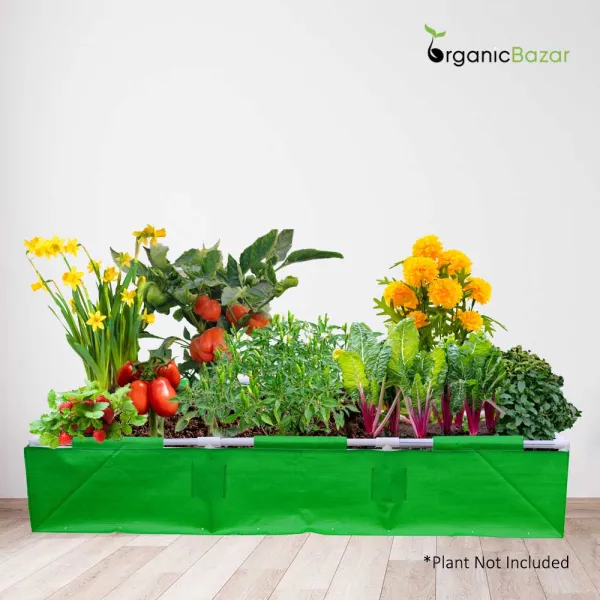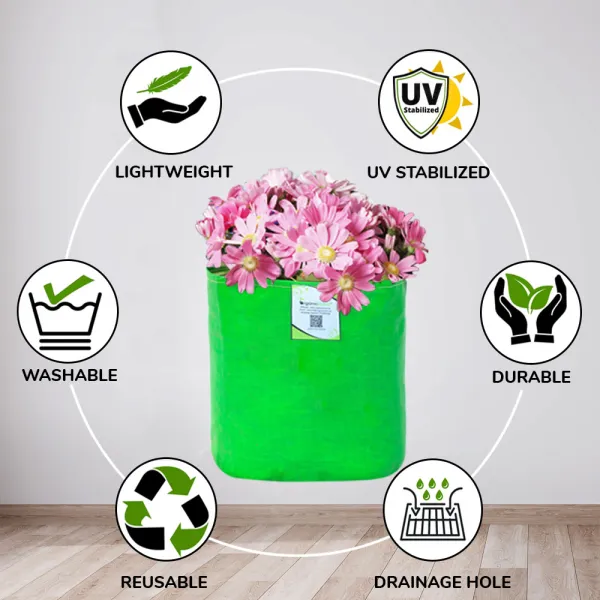Embracing Sustainability with Organic Biodegradable Bags in India
Organic biodegradable bags have emerged as a sustainable alternative to traditional plastic bags, offering eco-friendly packaging solutions that minimize environmental impact. In this comprehensive guide, we explore the landscape of organic biodegradable bags suppliers, wholesalers, and dealers in India, connecting businesses and individuals with sources of sustainable packaging for a greener future.
Understanding Organic Biodegradable Bags
1. Eco-Friendly Materials:
Organic biodegradable bags are made from natural and renewable materials such as plant-based polymers, bioplastics, or compostable materials derived from sources like corn starch, sugarcane, or cellulose. These materials decompose naturally over time, leaving behind no harmful residues or pollutants in the environment.
2. Biodegradability and Compostability:
Unlike traditional plastic bags that can persist in the environment for hundreds of years, organic biodegradable bags break down into natural components through biological processes such as composting or microbial action. This reduces the burden on landfills and helps mitigate the environmental impact of plastic pollution.
Navigating the Landscape of Organic Biodegradable Bags
1. Trusted Suppliers:
Begin your journey towards sustainable packaging by connecting with trusted suppliers of organic biodegradable bags. Eco-friendly product retailers, sustainable packaging companies, and online platforms specializing in green products are excellent sources to explore. Look for suppliers who prioritize quality, certification, and adherence to eco-friendly manufacturing practices to ensure that the bags you receive meet sustainability standards.
2. Wholesalers for Bulk Orders:
For businesses or individuals looking to transition to organic biodegradable bags on a larger scale, wholesalers offer a convenient solution. Reputable wholesalers often source bags directly from manufacturers or distributors, ensuring a steady supply of high-quality and cost-effective packaging solutions. Establish direct communication with wholesalers, inquire about product specifications and customization options, and consider sampling the bags to assess their suitability for your needs.
3. Dealers and Retail Outlets for Everyday Use:
Local dealers and retail outlets play a crucial role in making organic biodegradable bags accessible for everyday use. Explore your neighborhood eco-friendly stores, supermarkets, and zero-waste shops where you can find a variety of biodegradable packaging options. Building relationships with dealers allows for personalized service and the opportunity to explore different bag sizes, styles, and customization options to meet your specific requirements.
Benefits of Organic Biodegradable Bags
-
Reduced Environmental Impact: Organic biodegradable bags offer a sustainable alternative to conventional plastic bags, reducing dependence on fossil fuels, minimizing pollution, and promoting responsible waste management practices.
-
Biodegradability: Biodegradable bags break down into natural components over time, reducing the accumulation of plastic waste in landfills, oceans, and ecosystems.
-
Compostability: Some organic biodegradable bags are compostable, meaning they can be safely returned to the soil through composting, enriching the earth with organic matter and nutrients.
-
Versatility: Organic biodegradable bags come in various sizes, styles, and designs, making them suitable for a wide range of packaging applications, including retail, food service, agriculture, and more.
Applications of Organic Biodegradable Bags
-
Retail Packaging: Use organic biodegradable bags for packaging products such as groceries, clothing, cosmetics, and household items, offering customers a sustainable and eco-friendly shopping experience.
-
Food Service: Replace traditional plastic bags with organic biodegradable bags for packaging takeaway meals, snacks, and beverages, reducing single-use plastic waste in the food service industry.
-
Agricultural Use: Utilize biodegradable bags for packaging seeds, fertilizers, and agricultural products, promoting sustainable farming practices and minimizing environmental impact.
-
Events and Promotions: Distribute promotional materials, giveaways, or event swag in organic biodegradable bags, aligning with eco-conscious values and minimizing environmental footprint.
Tips for Choosing and Using Organic Biodegradable Bags
-
Certification: Look for bags certified as biodegradable or compostable by recognized organizations or standards such as ASTM D6400 or EN 13432 to ensure they meet environmental standards.
-
Proper Disposal: Dispose of organic biodegradable bags in composting facilities or designated compost bins to facilitate decomposition and minimize environmental impact.
-
Storage Conditions: Store biodegradable bags in a cool, dry place away from direct sunlight and moisture to maintain their integrity and prolong their shelf life.
-
Educate and Inform: Educate consumers and stakeholders about the benefits of organic biodegradable bags and proper disposal practices to foster awareness and promote sustainable behavior.
Embrace Sustainability with Organic Biodegradable Bags
Organic biodegradable bags represent a step towards a more sustainable and eco-friendly future, offering businesses and individuals an opportunity to reduce their environmental footprint and contribute to positive change. Connect with trusted suppliers, wholesalers, and dealers in India to explore organic biodegradable bags as a viable packaging solution for your needs. Embrace sustainability, minimize plastic pollution, and pave the way for a greener and healthier planet with organic biodegradable bags as a symbol of environmental stewardship and responsible consumption.





